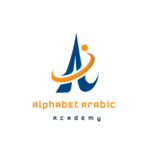how to learn arabic in India online?

Discovering the beauty and depth of the Arabic language has never been easier. With the rise of digital platforms and online learning, students across India can now access world-class Arabic courses from the comfort of their homes. At Alphabet Arabic Academy, you will study online with highly qualified Egyptian teachers who speak Arabic natively, providing an authentic learning experience as if you were living in an Arab country. Whether you’re a beginner or looking to enhance your fluency, our academy offers affordable, comprehensive, and tailored learning experiences designed to meet your needs. Learn Arabic Online India as you live in egypt
Learn Arabic Online India
Learning Arabic online in India is a seamless process with the right resources and guidance. Our academy focuses on teaching modern standard Arabic, conversational skills, and Quranic studies through interactive live sessions. Students advance at their own speed, benefiting from knowledgeable tutors and a curriculum designed for different proficiency levels, whilst improving crucial vocabulary , grammar, and conversation skills.
Online Arabic Classes India
Online Arabic classes in India provide a flexible and convenient solution for students, professionals, and kids alike. Alphabet Arabic Academy’s classes are led by certified native-speaking instructors who bring their expertise and cultural insights to every session. Whether you’re in Delhi, Bangalore, Hyderabad, or anywhere else, you can access high-quality lessons that cater to your goals.
Arabic Online Classes in India
Our Arabic online classes in India are designed to accommodate all age groups and learning objectives. From beginners aiming to read and write Arabic to advanced learners focusing on business communication, our tailored courses ensure you achieve your language goals. We use modern teaching tools like Zoom and other platforms to provide engaging, live interactions and personalized feedback.
Arabic Distance Learning Courses in India
Distance learning courses offer the ultimate convenience for those with busy schedules. Alphabet Arabic Academy’s programs are carefully crafted to provide a comprehensive learning experience through pre-recorded lessons, live Q&A sessions, and downloadable resources. Students can access classes anytime, making it easier to integrate learning into their daily routines.
Learn Arabic for Beginners
If you’re starting from scratch, our beginner courses are the perfect step forward. These classes focus on foundational skills such as reading, writing, and understanding basic grammar. Our structured approach ensures a strong base while keeping lessons engaging and interactive.
Online Arabic Classes for Kids
Children can also benefit from our specialized online Arabic classes tailored for young learners. Using games, stories, and other interactive tools, we make learning Arabic fun and exciting for kids. Our flexible schedules and one-on-one teaching options provide a comfortable and effective learning environment for children.
Online Madrasa India

For students seeking religious studies, our online Madrasa programs in India offer Quranic education and Islamic studies. With experienced tutors, we help students understand the Quran’s teachings while improving their Arabic language skills. These courses are ideal for kids and adults alike, ensuring personalized attention and affordable tuition fees.
Why Choose Alphabet Arabic Academy?
- Affordable Fees: Starting at just $40 per month, we provide quality education without breaking the bank.
- Expert Tutors: Learn from certified professionals with years of teaching experience.
- Flexible Schedules: Study at your pace with live and recorded sessions.
- Interactive Learning: Engage in lessons that include conversational practice, audio resources, and cultural insights.
- Comprehensive Courses: From beginners to advanced levels, we offer programs tailored to your needs.
- Trusted Platform: With excellent ratings and reviews, we’re a leading online institute for Arabic studies in India.
Start your journey into learning Arabic now.
Take the first step in mastering Arabic with Alphabet Arabic Academy. Our courses are designed to cater to learners in India with a focus on quality, convenience, and affordability. Visit our website alphabetarabicacademy.com Visit our site to discover our courses and sign up today. Follow us on Instagram, Facebook, and WhatsApp for updates and resources that enhance your learning experience.
Embark on an exciting journey to learn Arabic online in India today! Join our trusted academy and unlock new opportunities with the power of language.
also read
https://alphabetarabicacademy.com/learn-arabic-online-course/
https://alphabetarabicacademy.com/boost-skills-learn-arabic-online-in-weeks-now/
https://alphabetarabicacademy.com/learn-arabic-online-classes-start-now/


